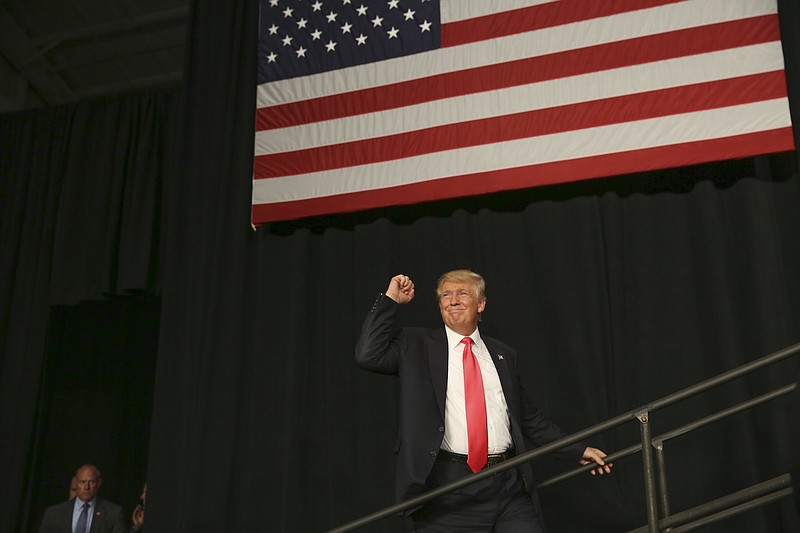Tolstoy wrote of "epidemic suggestion" to describe those moments when humanity seems to be gripped by a kind of mass hypnosis that no force can counter. The resulting movements, like the Crusades or the 17th-century Dutch tulip craze, cannot be controlled. We find ourselves in such a moment.
To imagine that the words I write, or those of countless others lamenting the world's lurch toward the politics of violence, may stem this "epidemic suggestion" is to indulge in fantasy.
It is part of the infernal nature of such eruptions that everything feeds them, including outrage. The slouching beast is insatiable.
Writing into such an environment is like directing a canoe into a gale. Still, here goes, while words still have some meaning.
Goodbye to all that. This looks like the end of a brief interlude that began in 1945. The interlude was relatively peaceful by historical standards. The postwar order involved new institutions, treaties, alliances, and even a union of the very European nations most given to repetitive bloodshed.
Its end was signaled in 2014 by Russian President Vladimir Putin's annexation of Crimea, a move that ripped to shreds the "territorial integrity" of Ukraine in direct violation of Article 2 of the United Nations Charter.
But it was not so much this act itself that presaged the unraveling. It was the lies that accompanied it. The Soviet Union, in 1931, used the slogan that two plus two equals five. Putin, a pure Soviet product, traffics in lies - the supposed Western encirclement of Russia, the preposterous notion that all the Russian forces and materiel in eastern Ukraine have been figments of the world's imagination.
Enter Putin's pal, Donald Trump, who declares that "there will be no lies" as a prelude to shrieking unvarnished untruth for 76 minutes from a gold-limned podium.
Trump is not alone. There is a global movement of minds. As John Lanchester has observed in The London Review of Books, "I don't think there's ever been a time in British politics when so many people in public life spent so much time loudly declaring things they knew not to be true." The successful arguments of the "Leave" campaign for Britain to quit the European Union "were based on lies."
Facts are now a quaint hangover from a time of rational discourse, little annoyances easily upended. Volume trumps reality.
A red-faced bully, adept in the choreography of collective hysteria, arises. He promises that he alone can set things right. He is the voice. He stands against a great tide of menace, from ISIS to immigrants, and only he understands the vast dimensions of the danger.
It is inevitable, given what he represents, that Trump looks to Putin. George Orwell observed: "Totalitarianism demands, in fact, the continuous alteration of the past, and in the long run probably demands a disbelief in the very existence of objective truth."
Putin is not a totalitarian, but he has totalitarianism in him, and the conditions of today are not those of the 1930s. But in the disaggregation of increasingly unequal societies, the frustrations of the many millions for whom life has become an exercise in precariousness, the pressures of globalization and mass migration, the stirring of racism, the spread of terrorism, and the steady undermining of truth, the seeds of a new authoritarianism have been sown. This is the wave Trump rides.
Trump's strongest argument is that he represents change and Hillary Clinton does not. He will see Clinton's charges of mendacity with accusations that she is untrustworthy. He may well win.
Anyone denying this has not grasped that "epidemic suggestion" tends to be unstoppable.
Brexit illustrated a thirst for disruption at any cost. It was the supporting act for a possible American leap in the dark that would place Trump's portrait in U.S. embassies around the world. Perhaps that's the least of it. Still. That face so displayed would signal the end of an era and imminent danger to the Republic and the world.
The New York Times
